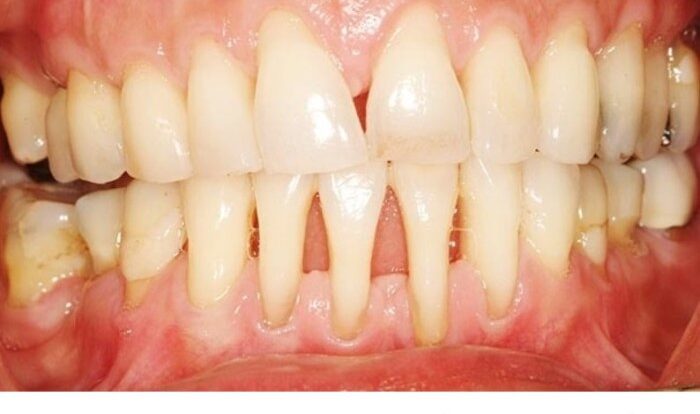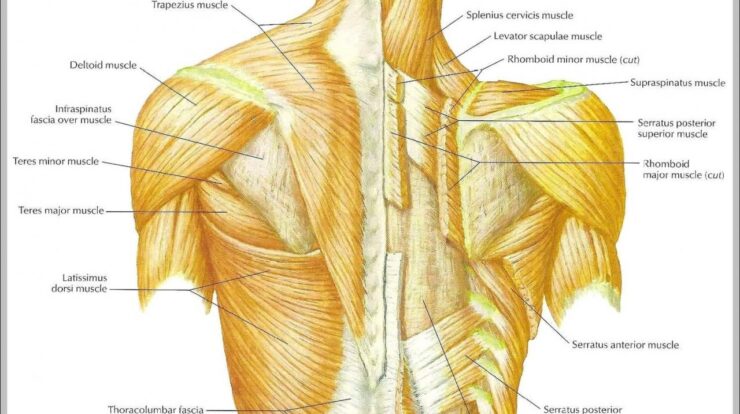
Suffering from gum disease? Don’t despair! Discover how to cure gum disease without a dentist using natural remedies, home care techniques, and more. Let’s dive into the world of gum health and empower you to achieve a healthy, pain-free smile.
Gum disease, also known as periodontal disease, is a common problem affecting millions worldwide. While visiting a dentist is crucial for severe cases, there are numerous effective ways to treat and prevent gum disease in the comfort of your own home.
Natural Remedies

Gum disease is a common problem that can lead to serious health issues if left untreated. While there are many conventional treatments for gum disease, there are also a number of natural remedies that can be effective in treating and preventing the condition.
Here are some of the most effective natural remedies for gum disease:
Oil Pulling
Oil pulling is an ancient Ayurvedic practice that involves swishing oil around in the mouth for 10-15 minutes each day. This helps to remove bacteria and toxins from the mouth, which can help to reduce inflammation and improve gum health.
To oil pull, simply swish 1 tablespoon of coconut oil, sesame oil, or olive oil around in your mouth for 10-15 minutes. Be sure to spit out the oil after you’re finished, as it will contain bacteria and toxins that you don’t want to swallow.
Oil pulling has been shown to be effective in reducing plaque and gingivitis, and it may also help to whiten teeth and improve breath.
Green Tea
Green tea is a powerful antioxidant that has been shown to have a number of health benefits, including reducing inflammation and improving gum health.
To use green tea as a natural remedy for gum disease, simply drink 2-3 cups of green tea per day. You can also use green tea bags to make a mouthwash by steeping them in hot water for 5 minutes and then letting them cool.
Green tea has been shown to be effective in reducing plaque and gingivitis, and it may also help to prevent gum disease from progressing.
There are several effective ways to cure gum disease without a dentist. These include practicing good oral hygiene by brushing twice a day, flossing regularly, and using an antibacterial mouthwash. Read more about how to cure gum disease without a dentist to learn about other methods like using natural remedies and making lifestyle changes that can help improve gum health and prevent gum disease from progressing.
Aloe Vera
Aloe vera is a natural anti-inflammatory that has been shown to be effective in treating gum disease.
To use aloe vera as a natural remedy for gum disease, simply apply a small amount of aloe vera gel to your gums and massage it in gently. You can also use aloe vera juice as a mouthwash by mixing 1 tablespoon of aloe vera juice with 1 cup of water.
Aloe vera has been shown to be effective in reducing plaque and gingivitis, and it may also help to heal bleeding gums.
Turmeric
Turmeric is a powerful antioxidant and anti-inflammatory that has been shown to be effective in treating gum disease.
To use turmeric as a natural remedy for gum disease, simply mix 1 teaspoon of turmeric powder with 1 teaspoon of water to form a paste. Apply the paste to your gums and massage it in gently. You can also add turmeric to your toothpaste or mouthwash.
Turmeric has been shown to be effective in reducing plaque and gingivitis, and it may also help to prevent gum disease from progressing.
Home Care Techniques
Maintaining proper oral hygiene is crucial for preventing and treating gum disease. By adopting a comprehensive home care routine, you can effectively remove plaque and bacteria, promote gum health, and reduce the risk of gum disease.
Brushing and Flossing
- Brush your teeth twice daily with a soft-bristled toothbrush and fluoride toothpaste.
- Use a circular motion and brush all surfaces of your teeth, including the insides, outsides, and chewing surfaces.
- Floss daily to remove plaque and bacteria from between your teeth where brushing cannot reach.
Mouthwash, How to cure gum disease without a dentist
Using mouthwash can help reduce bacteria and plaque in your mouth. Choose a mouthwash that contains an antiseptic, such as chlorhexidine or cetylpyridinium chloride.
Choosing the Right Products
Selecting the right oral hygiene products is essential for effective gum care:
- Toothpaste:Choose a toothpaste that contains fluoride to strengthen your teeth and prevent cavities.
- Toothbrush:Use a soft-bristled toothbrush to avoid damaging your gums.
- Mouthwash:Opt for a mouthwash that contains an antiseptic to kill bacteria and reduce plaque.
Dietary Modifications

Dietary modifications can play a crucial role in preventing and treating gum disease. Consuming a balanced diet rich in essential nutrients and avoiding foods that promote inflammation and bacterial growth is vital for maintaining optimal gum health.
Let’s explore the specific foods to promote and avoid, as well as the role of vitamins, minerals, and antioxidants in gum health.
Foods that Promote Gum Health
- Fruits and vegetables:Rich in vitamins, minerals, and antioxidants that support gum health, such as vitamin C, vitamin A, and beta-carotene.
- Dairy products:Good sources of calcium, which helps strengthen bones and teeth, including the jawbone that supports the gums.
- Whole grains:Provide fiber, which helps promote healthy digestion and reduces inflammation throughout the body.
- Lean protein:Essential for tissue repair and maintenance, including the gums.
- Green tea:Contains polyphenols that have antibacterial and anti-inflammatory properties.
Foods to Avoid
- Sugary foods and drinks:Feed bacteria that cause plaque and inflammation.
- Processed foods:Often high in unhealthy fats, sugar, and sodium, which can contribute to inflammation.
- Acidic foods and drinks:Can erode tooth enamel and damage the gums.
- Sticky foods:Can adhere to the teeth and promote plaque buildup.
Role of Vitamins, Minerals, and Antioxidants
Certain vitamins, minerals, and antioxidants play a crucial role in preventing gum disease:
- Vitamin C:Essential for collagen production, which is a protein that supports the structure of the gums.
- Vitamin A:Helps maintain healthy mucous membranes, including those in the gums.
- Vitamin D:Supports the immune system and may reduce inflammation.
- Calcium:Strengthens bones and teeth, including the jawbone that supports the gums.
- Antioxidants:Protect against damage caused by free radicals, which can contribute to gum disease.
Recipes and Meal Plans for Gum Health
Incorporating the recommended foods into your diet is essential for maintaining gum health. Here are some recipes and meal plans to help you get started:
- Breakfast:Oatmeal with berries and nuts
- Lunch:Salad with grilled chicken, quinoa, and vegetables
- Dinner:Salmon with roasted vegetables and brown rice
- Snacks:Fruits, vegetables, yogurt, or trail mix
Lifestyle Changes: How To Cure Gum Disease Without A Dentist

Gum disease is not just a dental problem but also a reflection of your overall health and lifestyle. Certain lifestyle factors can contribute to the development and progression of gum disease.
By addressing these factors, you can create a healthier environment for your gums and teeth, reducing your risk of gum disease and improving your overall well-being.
Stress Management
Chronic stress can weaken your immune system, making you more susceptible to infections, including gum disease. Find healthy ways to manage stress, such as exercise, yoga, meditation, or spending time in nature.
Gum disease can be a real pain, but it doesn’t have to be. There are plenty of ways to cure gum disease without a dentist . From natural remedies to over-the-counter treatments, there’s sure to be something that works for you.
So don’t suffer from gum disease any longer. Check out the link above and start curing your gum disease today!
Sleep
Sleep deprivation can impair your immune function and increase inflammation, both of which can contribute to gum disease. Aim for 7-9 hours of quality sleep each night.
Smoking Cessation
Smoking is a major risk factor for gum disease. Chemicals in cigarettes damage the gums and blood vessels, making them more vulnerable to infection. Quitting smoking is one of the most important things you can do for your gum health.
Exercise and Overall Health
Regular exercise and maintaining a healthy weight can improve your overall health and well-being, which can positively impact your gum health. Exercise helps reduce inflammation and improves circulation, while maintaining a healthy weight helps reduce the risk of diabetes and other systemic diseases that can affect gum health.
Alternative Therapies
Alternative therapies for gum disease aim to improve oral health and reduce inflammation. However, it’s crucial to consult a healthcare professional before using them, as some may interact with medications or have potential side effects.
Gum disease can be a serious problem, but it doesn’t have to be. There are many ways to cure gum disease without a dentist, and some of them are surprisingly simple. Click here to learn more about how to cure gum disease without a dentist.
Acupuncture
Acupuncture involves inserting thin needles into specific points on the body. It is believed to stimulate the body’s natural healing mechanisms and reduce pain. Studies suggest that acupuncture may help reduce gum inflammation and bleeding.
Herbal Remedies
Certain herbs, such as aloe vera, green tea, and turmeric, possess antibacterial and anti-inflammatory properties. Aloe vera can soothe irritated gums, while green tea contains antioxidants that fight bacteria. Turmeric is known for its anti-inflammatory effects.
If you’re looking for ways to cure gum disease without a dentist, there are a few things you can try. How to cure gum disease without a dentist is a common concern, and there are many ways to address it.
One is to use a mouthwash that contains chlorhexidine. Another is to brush your teeth with a toothpaste that contains fluoride. You can also try flossing regularly and using a tongue scraper to remove bacteria from your tongue.
Oil Pulling
Oil pulling involves swishing a tablespoon of oil, such as coconut or sesame oil, in the mouth for 15-20 minutes before spitting it out. This practice is believed to draw out toxins and reduce inflammation. However, there is limited scientific evidence to support its effectiveness.
Last Word

By embracing these natural remedies, home care techniques, dietary modifications, lifestyle changes, and alternative therapies, you can effectively combat gum disease and maintain optimal oral health. Remember, consistency and proper oral hygiene are key to long-lasting results. If symptoms persist or worsen, don’t hesitate to seek professional dental advice.
FAQ
Can I cure gum disease permanently without a dentist?
While it’s possible to improve gum health naturally, severe cases may require professional intervention. Regular dental checkups are recommended to monitor progress and ensure optimal oral health.
How long does it take to cure gum disease naturally?
The duration varies depending on the severity of the condition and individual response to treatment. However, with consistent efforts and proper oral hygiene, noticeable improvements can be observed within a few weeks to months.
Is it safe to use essential oils for gum disease?
Some essential oils, such as tea tree oil and clove oil, have antibacterial properties that may benefit gum health. However, it’s crucial to dilute them properly and use them under the guidance of a healthcare professional to avoid potential risks.





